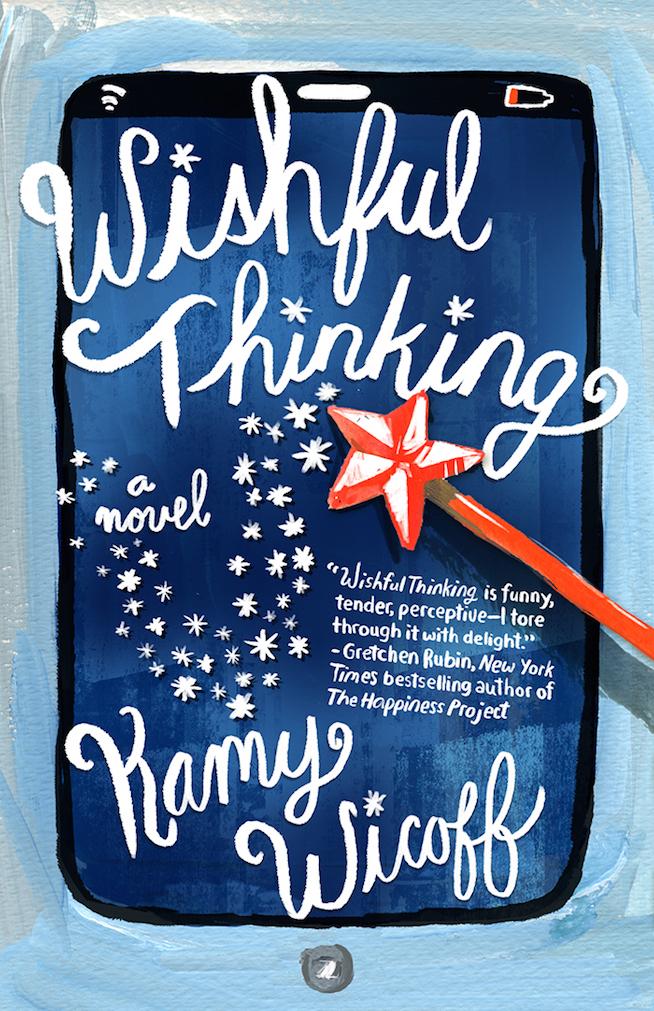
Wishful Thinking cover.
The story artfully combines science fiction with a wry look at the challenges of motherhood, single parenting, work-life balance, and the impact of social media.
It’s been 86 years since Virginia Woolf suggested that “a woman must have money and a room of her own if she is to write fiction.”
Getting the voices and stories of women out into the world continues to be a struggle.
In 2009, Kamy Wicoff co-founded SheWrites, an online platform and community to support women writers. What began with a handful of members has grown to encompass 26,000 people.
Wicoff, who brought out her non-fiction book, I Do But I Don’t in 2012 with Da Capo Press, teamed up with Brooke Warner to iniatiate SheWrites Press, a different prototype for publishing. The goal was to deliver top-notch content that was too often overlooked by the literary establishment.
Encouraged by a changing landscape, Wicoff and Warner developed a hybrid model that would allow excellent work to get to the public. Manuscripts would meet top vetting standards (unlike a self-publishing operation). Writers paid for the services of strong editorial oversight and production benchmarks. However, they got to keep a far greater percentage of the sales. “We provide an alternative,” Wicoff underscored.

Having read the book, I can attest to the fact that by either route, Wishful Thinking would have been a success. The story artfully combines science fiction with a wry look at the challenges of motherhood, single parenting, work-life balance, and the impact of social media.
The story’s heroine, Jennifer, is on the cusp of turning 40 while dealing with a difficult divorce, job stress, and the trials of building a life that allow her to function on all fronts.
Using the fantastical construct of time travel via a phone app, Wicoff enables Jennifer to pack 35 hours into a 24-hour day. This allows Jennifer to spend more time with her children, attend their school functions, put in extra long hours at the New York Housing Authority (much to the chagrin of her female co-workers), and even engage in a promising new romance.
Along the way, Wicoff captures the essence of stressed-out women who compare their lives and accomplishments to those of their peers — usually via Facebook. The dialogues capturing playdates, school pick-ups, and the various styles of mothering are pitch-perfect.
A science lesson is in store for readers, led by the unapologetically feminist and brilliant character, Dr. Diane Sexton. Quantum physics, wormholes, and frequency hopping are all expounded upon by Sexton and integrated into the plot in a completely natural way. The reader also gets some back story on women in history from Florence Nightingale (who used statistics and mathematics in her nursing and social reform), to the Hollywood actress Hedy Lamarr, who designed the technology that would become the foundation for wireless communications.
Yet, beyond the novelty of Jennifer being in three places at once, Wicoff poses a range of important questions about contemporary society — and women’s place within it. Wicoff holds up a mirror while parsing sexism among male physicists toward their female colleagues, lesbian relationships, racial inequality, and the way women strive to compartmentalize the different parts of their lives — rather than choosing to integrate them.
Just as Dorothy eventually realizes “there’s no place like home,” Jennifer comes to accept that time travel eradicates the option of “really being in the moment.” Although it solves the problem of a never ending to-to list, it also extinguishes the element of deep human interaction.
As the book draws to a close, readers may be less desirous of getting their hands on the magical “Wishful Thinking” app, and more interested in stepping up to challenge the concept that women have to be all things to all people…at all times.



